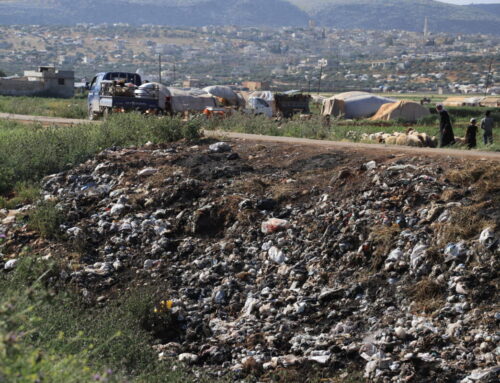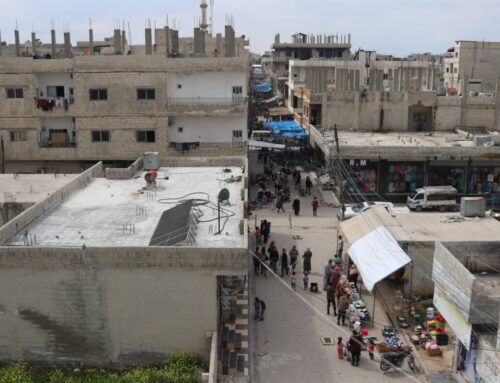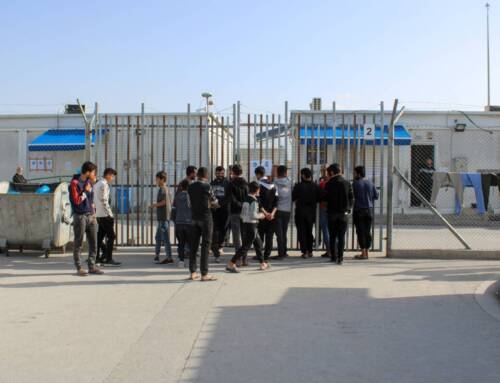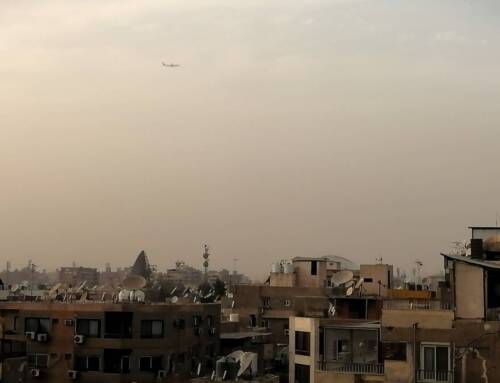No hospitals left in east Aleppo after intense barrage, ‘the streets are dead silent’ as hundreds killed
AMMAN: Scores of airstrikes, hundreds of barrel bombs and more […]
21 November 2016
AMMAN: Scores of airstrikes, hundreds of barrel bombs and more than 1,000 artillery shells have killed at least 300 east Aleppo civilians and shut down the city’s last remaining hospitals, one week into Russia and the regime’s latest campaign “to kneel or else.”
A proposal by the United Nations to stop the fighting was soundly rejected on Sunday by Syrian Foreign Minister Walid al-Moallem. The minister told a press conference in Damascus that his government repudiated a UN proposal that would permit east Aleppo to remain under opposition control if rebel fighters left the city.
“Is it possible that the United Nations has come to reward the terrorists who are still firing random shells at west Aleppo?” asked al-Moallem.
The foreign minister went on to characterize the UN’s proposal as a violation of “national sovereignty.”
“It makes no sense at all to leave 275,000 of our fellow citizens [in east Aleppo] as hostages by five or six or seven thousand militants. No government in the world would allow that,” al-Moallem continued in a Sunday press conference.
Al-Moallem’s statements came hours after east Aleppo-based rebels shelled a primary school in the regime-controlled west, reportedly killing at least 11 children. An estimated 27 more children and teachers were injured in what Syrian state media called a “terrorist attack” on residential neighborhoods.
The west Aleppo students ranged in age from seven to 12 years old.
The failed UN initiative follows a furious weekend of “systematic and continuous bombings” that entirely shut down the city’s five remaining field hospitals, the Aleppo City Medical Directorate said in a statement on Sunday.

More than 250,000 east Aleppo residents “are now without access to hospital care,” the World Heath Organization said in an online press release the same day.
“Residents no longer have access to trauma care, major surgeries and other consultations for serious health conditions, despite urgently needing this care,” the statement continued.
With literally no functioning hospitals as of Monday, two medical workers in east Aleppo told Syria Direct that the only option for more than a quarter of a million people trapped inside is one poorly equipped, understaffed and overwhelmed “medical point.” The sources said that calling the ad-hoc triage center a “hospital,” the location of which they would not disclose out of fear of further airstrikes, would be inaccurate.
“I can’t even mention its name because otherwise I know that it will be targeted,” Hassan Rabi’a al-Haj, an east Aleppo anesthesia technician, told Syria Direct.
Nearly half a dozen medical staff described the impact of hours of daily bombings on their facilities, and being forced to make the decision about whom to treat and whom to bypass due to scarce resources. Hundreds of injured patients nonetheless rolled into critically damaged hospitals that were without access to surgical equipment, painkillers or medicine up until the point of being bombed out of functionality.
The last existing medical point does not treat the sick or the injured. Medical workers there say they can only accept the critically wounded who have a chance of being saved before the next wave of patients flood in after the inevitable subsequent airstrike.
“Doctors place the injured in the halls because there aren’t enough beds,” said anesthesia technician al-Haj.
Up to 500 seriously injured arrive at the point every day, a doctor who requested anonymity told Syria Direct.
“We have to prioritize those who have better chances of surviving,” Abdul Baset Ibrahim, head of the Aleppo Health Directorate told Syria Direct. “These are impossible decisions,” he said.
“You need to understand, having more operating theaters or even better-equipped ones won’t make a difference,” Ibrahim said. “Doctors feel defeated because they simply cannot work fast enough to meet these monumental needs.”

Amputations are now the quick fix for an injured leg, the health official said. “There is neither the time nor the supplies to treat a possible infection.”
Some Aleppo residents say they would prefer death to being injured.
“We know the hospitals can’t treat everybody,” Abu Walid al-Halabi, an east Aleppo citizen journalist told Syria Direct, adding that he prefers a quick death to suffering. “Death is the preferred option here in Aleppo.”
The Assad regime, says al-Haj, “wants to force the armed factions to surrender and to kneel or else the fate of the civilians will be to die and starve and be bombed.”
On Monday, a renewed barrage of artillery shells, airstrikes and barrel bombs landed on east Aleppo. The Aleppo Civil Defense has yet to release the final death toll following attacks on more than half a dozen east Aleppo districts.
“The media can try to cover what’s going on in Aleppo,” east Aleppo citizen journalist Ali Abu Kamal, told Syria Direct. “But they won’t be able to cover even a fraction of the full immensity and tragedy of this situation.”
“This is what a Holocaust looks like.”
‘I can’t sleep’
Outside the hospital, the streets of east Aleppo are “dead silent” except for bombs careening into buildings, over and over. Residents say the only sounds they hear are the bombs falling and the concrete collapsing. They speak of the inevitability of death as if it were very, very close at hand.
Umm Yazan is a mother of four small children who lost her husband after a bombing attack earlier this year. She says she huddles in a corner of her house with her children, listening to the bombs falling.
“I can’t sleep, I’m so afraid,” she told Syria Direct.
“Every time I look at my children, I fear that that will be the last time.”







